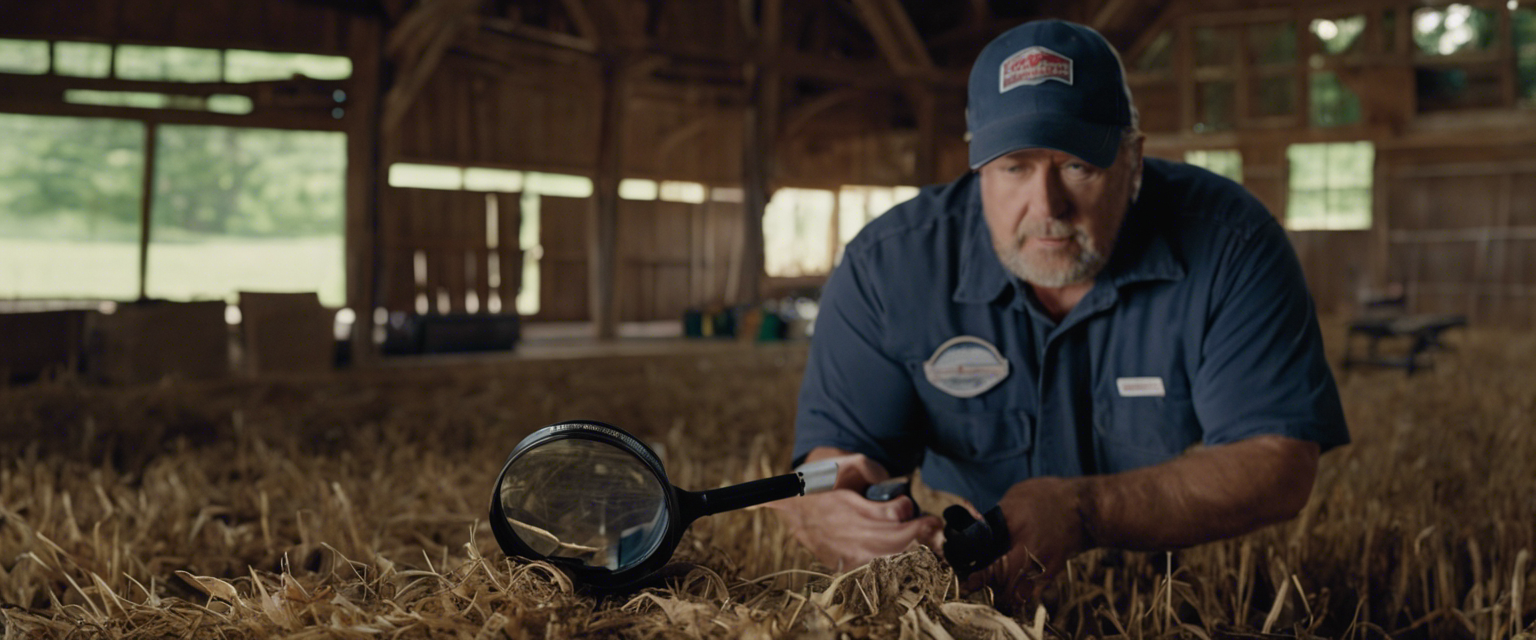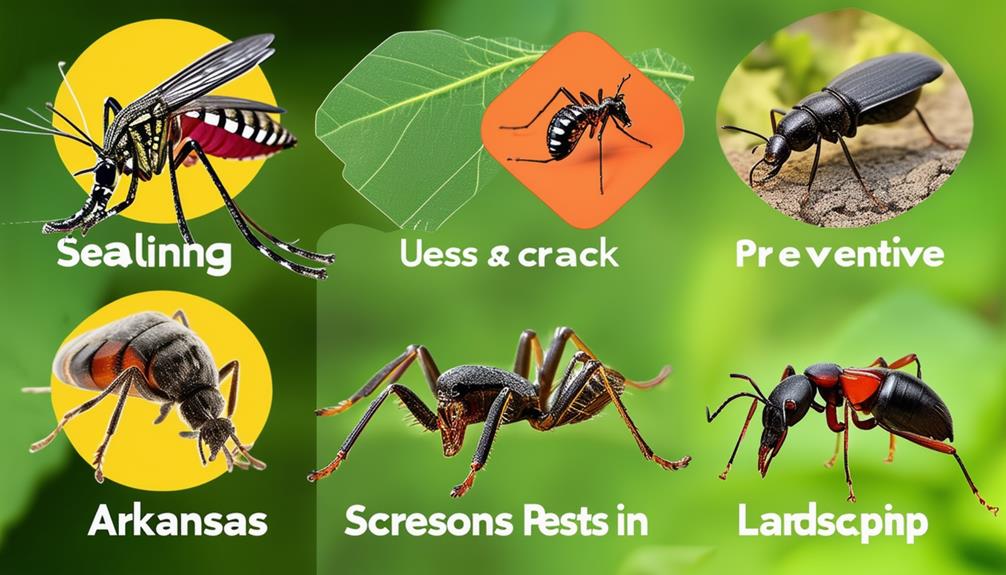Are you tired of dealing with rodent infestations in your Arkansas home? Have you heard conflicting advice on how to effectively control these pests?
It’s time to separate fact from fiction and debunk the common myths and misconceptions surrounding Arkansas rodent control. From the belief that clean homes are impervious to infestations to the notion that cheese is the ultimate mouse trap bait, there are many misconceptions that need to be addressed.
In this discussion, we will explore the truth behind these myths and provide you with the most effective methods for rodent control in Arkansas. Get ready to discover the real solutions that will help you regain control of your home.
Key Takeaways
- Traps and chemical sprays are effective methods for controlling rodents and insects, while cats are not reliable for rodent control.
- Rodents can spread diseases such as hantavirus, leptospirosis, and rat-bite fever through direct contact or contaminated food and water sources.
- Rodents, like rats, reproduce quickly, and proper baiting techniques are crucial for effective rodent control.
- Cleanliness alone cannot prevent rodents from entering a home, and regular pest control measures are necessary regardless of sanitation levels.
Rodent Control Methods: What Really Works
Traps and chemical sprays are effective methods for controlling rodents and insects. When it comes to rodent control, it’s essential to separate fact from fiction.
One common misconception is that cats are the ultimate solution for keeping rodents at bay. While cats may catch a few mice, they aren’t a reliable method of control. Instead, consider using snap traps or glue traps, which are specifically designed to catch rodents.
Chemical sprays can also be effective, but it’s important to read and follow the instructions carefully to ensure safe usage. Additionally, it’s crucial to address the root cause of the rodent infestation and take preventive measures such as sealing entry points and keeping food properly stored.
The Truth About Rodent-Borne Diseases
Rodent-borne diseases pose a significant threat to human health, making it crucial to understand the risks associated with these pests. Mice and rats can spread diseases such as hantavirus, leptospirosis, and rat-bite fever. These diseases can be transmitted through direct contact with rodents, their urine, feces, or saliva.
Additionally, rodent-borne diseases can be spread indirectly through contaminated food and water sources. It’s important to seek medical attention if you suspect exposure to rodent-borne diseases. Contrary to common myths, these diseases aren’t limited to rural areas or unclean environments.
Preventing rodent infestations through proper sanitation and pest control measures is crucial for reducing the risk of rodent-borne diseases. By understanding the truth about these diseases and taking necessary precautions, you can protect yourself and your loved ones from the potential health risks associated with rodents.
Understanding Rodent Reproduction and Population Growth
Understanding how rodents reproduce and their population growth is essential for effective rodent control and prevention strategies. Here are four key facts about rodent reproduction and population growth that will help you in your pest control efforts:
-
Rapid Reproduction: Rodents, such as rats, have the ability to reproduce quickly. Female rats can become pregnant up to five times a year, with each litter averaging around 14 offspring. This rapid reproduction contributes to the exponential growth of rodent populations.
-
Environmental Factors: Conditions and food availability play a significant role in the multiplication of mice and rats. Standard environments like shopping centers, cities, and homes provide ample resources for rodents to thrive and increase their numbers rapidly.
-
Baiting Techniques: Proper baiting techniques are crucial for effective rodent control. When using glue boards, it’s important to avoid using peanut butter as bait, as it can reduce the stickiness of the board. Using alternative baits specifically designed for rodent control will yield better results.
-
Reusing Snap Traps: Reusing snap traps can be an effective strategy. The scent left behind by previous catches can attract rodents to the trap, increasing its success rate. Regularly inspecting and resetting snap traps will help maintain their effectiveness in controlling rodent populations.
Effective Alternatives to Using Peanut Butter on Glue Boards
To effectively control rodent populations, it is important to explore alternative options to using peanut butter on glue boards. While peanut butter is commonly used as bait on glue boards, there are other effective alternatives that can be utilized. Professional pest control experts and DIY pest control enthusiasts have discovered various baiting techniques that yield successful results in catching rodents. Instead of relying solely on peanut butter, consider using the following alternatives:
| Alternative Bait | Advantages | Disadvantages |
|---|---|---|
| Chocolate | Attracts rodents with its strong scent | May melt in warmer temperatures |
| Bacon | Irresistible smell for rodents | Can spoil quickly |
| Nuts and Seeds | Appeals to rodents’ natural foraging behavior | May not be as enticing to all rodent species |
Debunking the Connection Between Rodent Infestations and Poor Sanitation
Contrary to popular belief, the presence of rodents in a home isn’t solely determined by poor sanitation. While maintaining cleanliness is important for overall hygiene, it doesn’t guarantee protection against rodent infestations.
Here are four key points to consider when debunking the connection between rodent infestations and poor sanitation:
-
Cleanliness alone can’t prevent rodents from entering a home. These pests can still infest clean homes in search of food, warmth, and shelter.
-
Poor sanitation isn’t the sole factor for rodent infestations. Even in the cleanest environments, rodents can find abundant food sources and suitable conditions to thrive.
-
Regular pest control measures are necessary regardless of sanitation levels. It’s crucial to make sure your home is protected by implementing common pest control practices.
-
Rodent infestations can happen to anyone, regardless of how clean their home is. It’s recommended to have your property inspected by professionals every year to ensure early detection and effective prevention strategies are in place.
Frequently Asked Questions
Is Rodent Exclusion Worth It?
Rodent exclusion is definitely worth it. It’s a cost-effective way to protect your property and prevent health risks. The effectiveness of exclusion methods and the long-term impact on property value make it a smart investment.
Do Rodents Have Sphincters?
Yes, rodents do have sphincters. These tiny muscles help them control digestion and waste elimination. Understanding this aspect of their digestive system is crucial for effective rodent control and maintaining a healthy environment.





